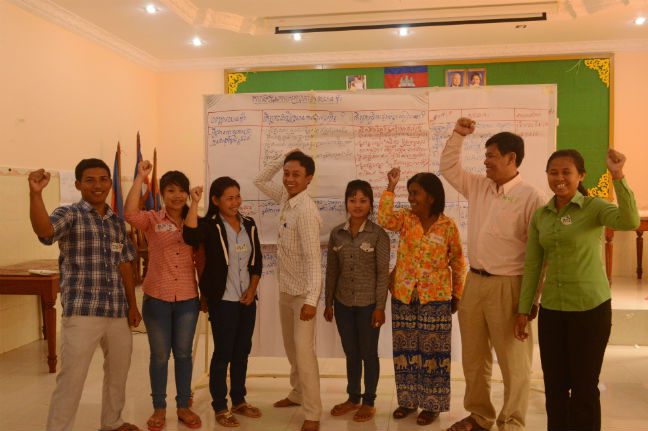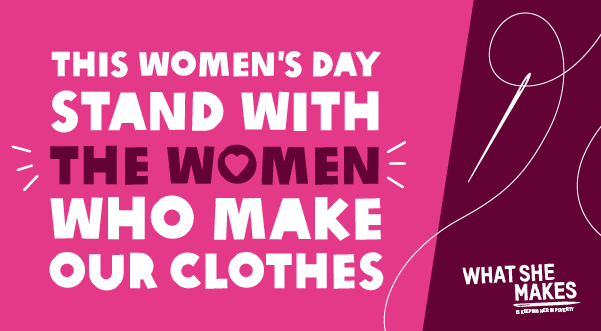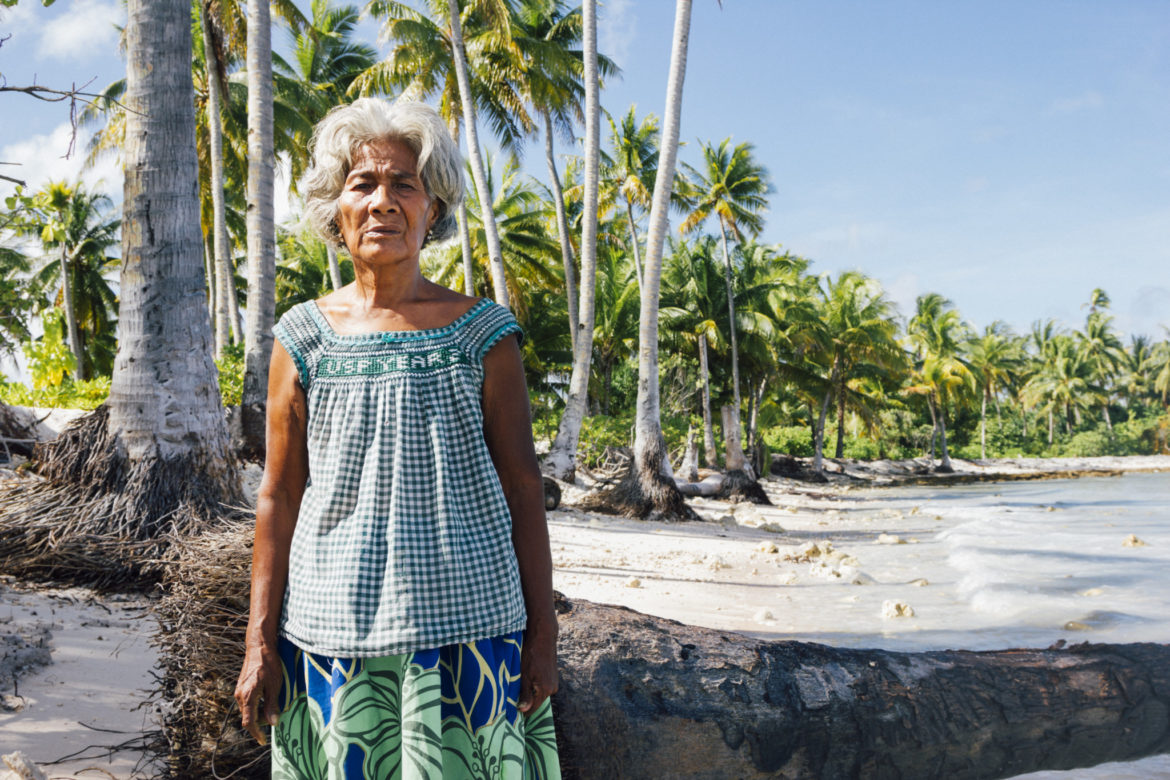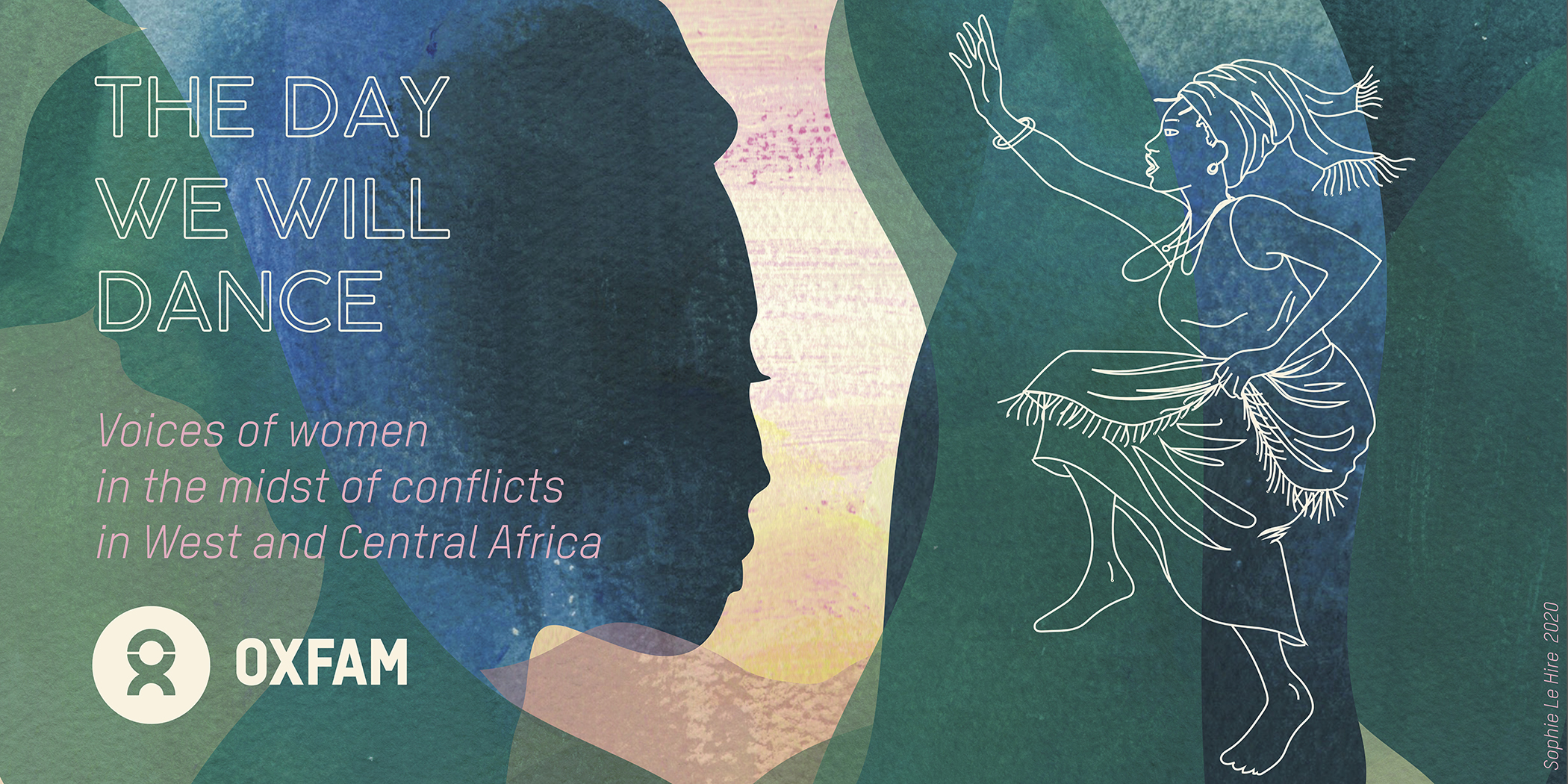The Mekong river is a vital resource for poor and vulnerable people in the lower Mekong region, including essential water for fisheries and agriculture. Major development decisions — like dams — can affect the food security of the surrounding communities. The impacts of development on women and ethnic minorities is of particular concern.
Two such women who share these concerns are Polin, a gender officer for My Village (MVi) and Sary, a gender officer for North Eastern Rural Cambodia (NRD). They represent two non-governmental organisations supported by the Inclusion Project — a DFAT funded project to promote gender inclusiveness in water resources management in the Mekong region.
Both women are leaders who speak for change in gender and power dynamics in community fishery management.
In March 2015, Oxfam held a ‘Gender Action Planning workshop’ where Sary and Polin met for the first time. They were able to share and compare their experiences in community fishery work in Stung Treng (Cambodia) and the management of common gender issues.
“We have a number of challenges getting both men and women participating in community fishery management, planning and related activities,” said Polin.
“One of the challenges is getting husbands to understand why women participate in the meeting. Some of women are respected by other villagers to be their representatives in the community fishery committee such as Head of the ComFish Committee, but at home those women are treated differently due to the roles expected to play at household level (e.g. taking care of children, getting food ready on the table when husband comes home)”.
Forum Theatre was used during the workshop to demonstrate the gender issues in the community fishery context in northeast Cambodia. The interactive theatre highlighted lesser-known problems and helped participants envisage how they might address them in their own communities.
“When the issues are demonstrated through the play, we pause the play and ask other participants what we can do differently and what actions may be needed to change those difficult situations,” said Sary.
After the issues were identified, participants created gender action plans to record the commitment for both NGOs and communities to take action.
The plans identified strategies, commitment, and budget provisions to promote greater gender inclusion and address some gender issues including enhancing women’s skills as they become involved in project and community activities.
The process is a very important step to ensure greater involvement of women in community fishery work.
As one participant remarked: “Women have the right to pursue leadership at the community level. I am a head of the community fishery group and I am proud to be elected. We, alongside other women and men, shall try to understand and respect each other roles in both communities and society”.



